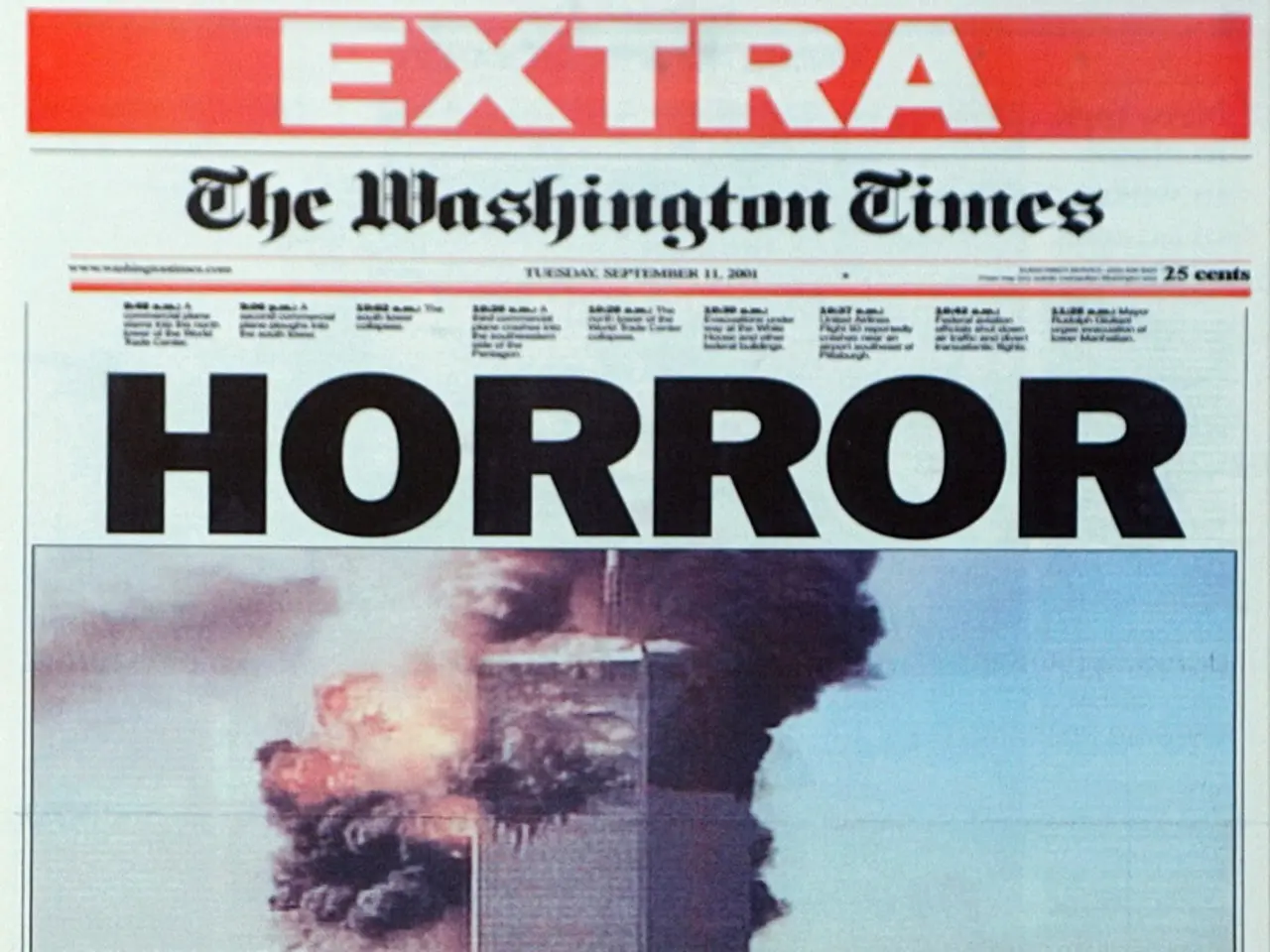Authoritarian tactics by Trump echo methodology of rulers to stifle opposition in media
In the United States, the media landscape has been a subject of intense scrutiny under the administration of former President Donald Trump.
Trump's Actions and ABC's Jimmy Kimmel
Trump's approach against the media had a significant impact, influencing not just the domestic media but also foreign correspondents. His criticism of ABC's Jimmy Kimmel, who made remarks critical of the president's MAGA movement, led to Trump cheering ABC's suspension of Kimmel's late-night show. This incident highlighted the president's broader efforts to pressure journalists, media companies, comedians, and commentators.
The Influence Across the Atlantic
The effects of Trump's tactics were not limited to the US. His methods have been compared to autocratic behaviors, sparking concerns about media freedom. These concerns were echoed in Europe, where leaders like Hungarian Prime Minister Viktor Orbán and Serbia's President Aleksandar Vucic have faced accusations of curtailing media freedoms.
Orbán, whose leadership style is revered by many conservatives in the US, has made hostility towards the press central to his political brand, borrowing Trump's phrase 'fake news' to describe critical outlets. Media watchdog Reporters Without Borders says Orbán has built 'a true media empire subject to his party's orders' through allies' acquisitions of newspapers and broadcasters. In 2018, Orbán's allies donated nearly 500 news outlets they had acquired to a government-controlled conglomerate.
The European Parliament's Declaration
The European Parliament declared in 2022 that Hungary could no longer be considered a democracy due to Orbán's moves against independent media and systematic capture of democratic institutions. This declaration underscores the global implications of Trump's media crackdown and the potential for similar tactics to be adopted by other political leaders.
Russia and India
The crackdown on independent media has also been observed in Russia, where President Vladimir Putin's actions have intensified after Russia's 2022 invasion of Ukraine. In India, Prime Minister Narendra Modi's rise has coincided with mounting pressure on comedians and satirists.
Regulatory Actions
Regulatory bodies have also been involved in this global media crackdown. In the US, Federal Communications Commission Chairman Brendan Carr launched investigations into public broadcasting networks. Trump has targeted social media giants, including Meta, and threatened to revoke the licenses of networks providing 'bad publicity.'
Journalist Safety and Visa Restrictions
The safety of journalists has been a significant concern in many of these countries. In Serbia, journalist safety has worsened since student-led protests challenging Vucic's rule began. Trump's rhetoric and actions have been linked to controversial visa restrictions limiting journalists' visas to 240 days, sparking international criticism including from German media organizations appealing to their government to intervene diplomatically.
The Role of Trump's Inauguration Donors
Interestingly, Washington Post owner Jeff Bezos, whose companies have significant government contracts, donated $1 million to Trump's inauguration, raising questions about potential conflicts of interest.
In conclusion, Trump's aggressive campaign against the media, unlike any in modern US history, has had far-reaching implications. His tactics, which have been compared to autocratic behaviors, have sparked concerns about media freedom and have been observed in various political domains around the world.
Read also:
- United States tariffs pose a threat to India, necessitating the recruitment of adept negotiators or strategists, similar to those who had influenced Trump's decisions.
- Weekly happenings in the German Federal Parliament (Bundestag)
- Southwest region's most popular posts, accompanied by an inquiry:
- Discussion between Putin and Trump in Alaska could potentially overshadow Ukraine's concerns








